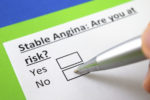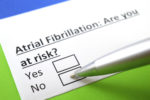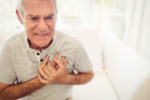Adult CPR, or Cardio Pulmonary Resuscitation, is vital for restarting someones heart if it stops beating. If someone is unconscious, check to see if they are breathing and if they are not, commence CPR. Arriving at the Scene As a First Aider, the first thing you should always do is check for dangers. Your safety […]
Articles Tagged: Heart
Effective CPR
Effective CPR is key to having a higher chance of resuscitating a patient who has had a heart attack. The optimum position for providing CPR is by the side of the victim to allow for easier movement between the compressions and the breaths. Compressions could be given over the head if the victim is in […]
SADS
Sudden Arrhythmic Death Syndrome or SADS, is caused by abnormalities in the heart rhythm. SADS can cause sudden death in young people who appear to be healthy. This condition has treatment available, but only if diagnosed. There are some warning signs such as a family history of unexplained death under the age of 40, problems […]
The Circulatory System
The heart is one of the most important organs in mammals and is made of muscular tissue. It pumps blood around the body to other vital organs, giving them oxygen for aerobic respiration. In one circulation of the body, blood enters and leaves the heart twice. Arteries and veins carry blood around the body. Arteries […]

Stable Angina
Coronary Heart Disease Stable angina is a very common problem in the UK due to coronary heart disease (CHD). CHD can be caused by many different factors including diet, fitness, genetics and other lifestyle factors. Your heart is a muscle, and like all muscles in the body, it needs oxygen to function properly. Therefore, a […]

Aspod – the safe way to carry Aspirin
An Aspod is a simple carrier for emergency Aspirin. There is evidence that taking aspirin during a heart attack is very beneficial. It can reduce the size of the clot causing the heart attack and sometimes even causes the platelets in the clot to disperse. Studies show that taking aspirin increases survival rates by around […]

Atrial Fibrillation
A normal heart beats between 60 and 100 per minute when resting. Atrial Fibrillation is a condition which can increase the heartbeat to over 140 beats per minute. These beats are likely to be irregular. In the heart of someone with this condition, the upper chambers of the heart (called Atria) contract randomly and so […]

Heart Attack
A heart attack is when a blockage occurs in the heart which starves itself of blood and therefore oxygen. Lots of people think that a sudden cardiac arrest and a heart attack are the same. However, a sudden cardiac arrest is when the heart stops beating. A heart attack can lead to cardiac arrest, however […]
